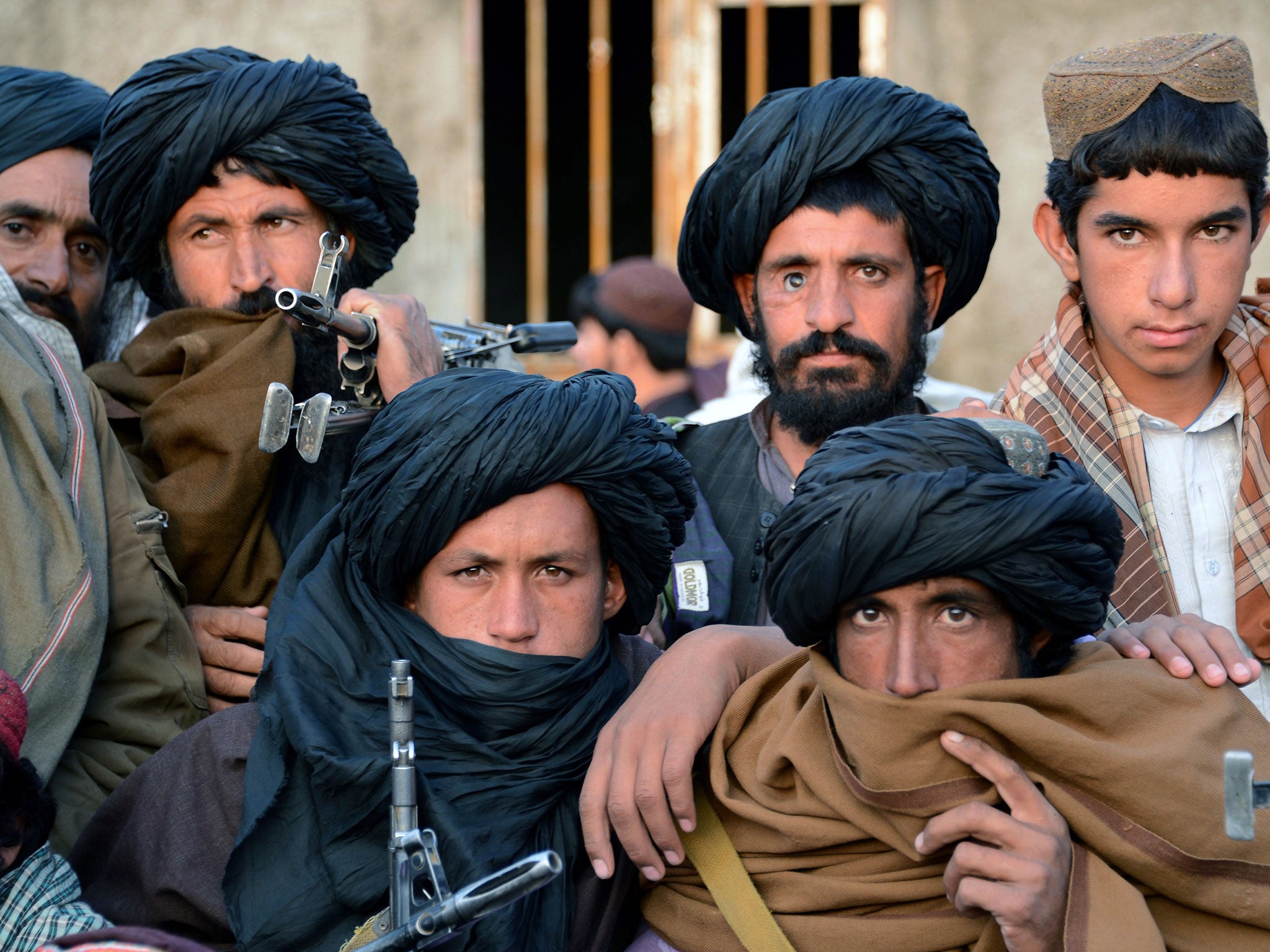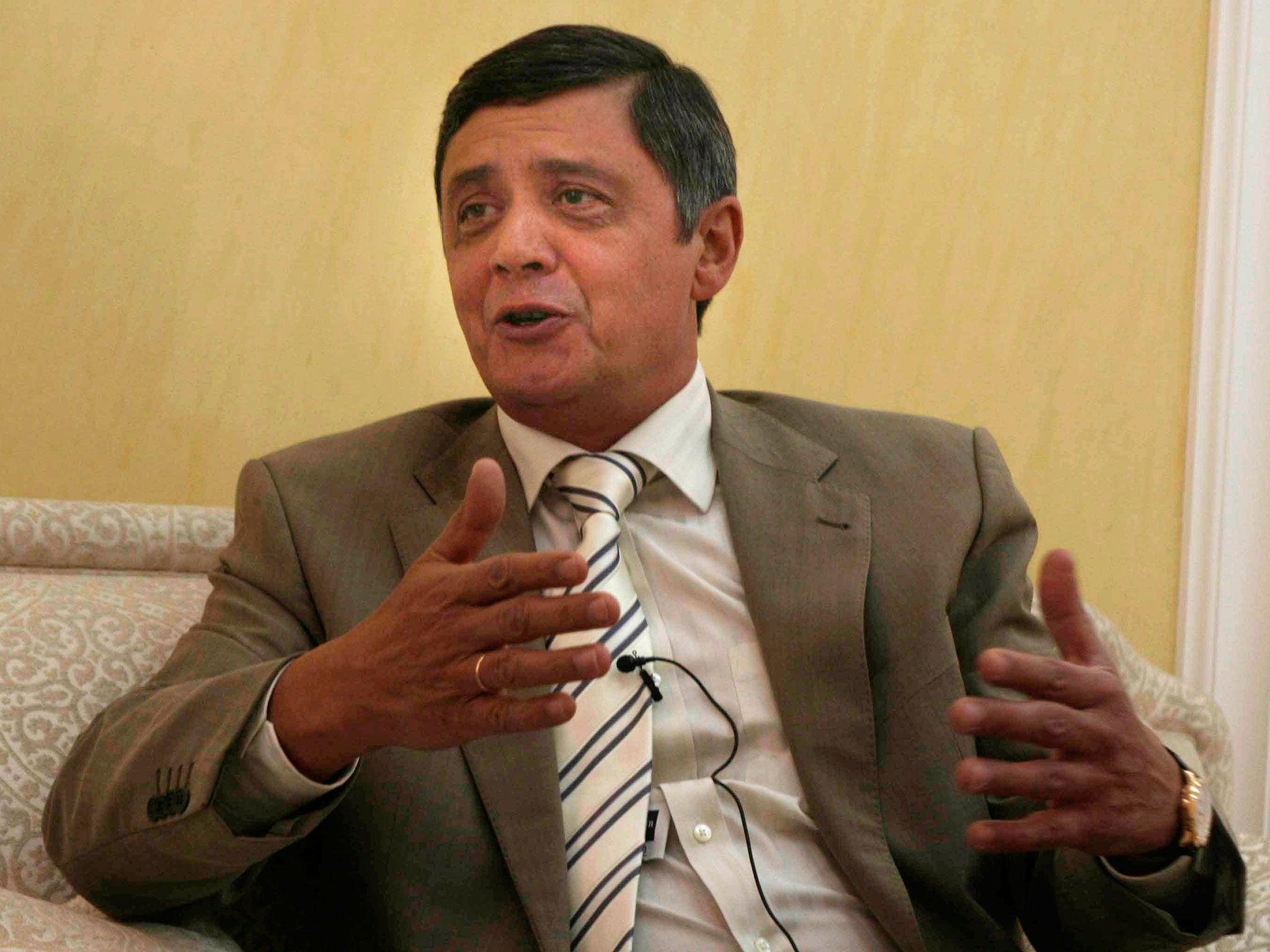World powers seek unlikely alliance with Taliban as 'interests coincide' in battle against shared enemy Isis
Hundreds of British and American lives were lost fighting the Islamist group during the West’s ‘war on terror’. Now, the threat from the caliphate has drastically changed the political landscape

The Russians want them on their side; so do the Chinese and the Iranians. The Taliban, whom the Americans and British have spent 15 years trying to defeat, are now increasingly in demand as valued allies by international powers.
The reason Moscow wants to work with the Taliban – many of them sons of the Mujaheddin, against whom Russian forces had fought a bloody, decade-long war – is that the Afghan militants are engaged in a bitter struggle against Isis for jihadist supremacy in Afghanistan.
Vladimir Putin had stated that one of the reasons for starting air strikes against Isis in Syria was the threat Russia faces from fighters returning from former Soviet central Asia and carrying out terrorist attacks. China is alarmed by what it claims are links between Isis and the East Turkestan independence movement, popular among China’s Uighur Muslims. Iran, battling Isis in Syria and Iraq, sees a serious threat in the group’s growing presence across its eastern border.
There have been increasing reports of the Russians liaising with the Taliban. Then last week came the largely unnoticed words of Zamir Kabulov, the Kremlin’s special envoy to Afghanistan, who declared: “Taliban interests objectively coincide with ours.”
He said: “Both the Afghan and the Pakistani Taliban have said they don’t recognise Isis and they don’t recognise the Isis leader [Abu Bakr] al‑Baghdadi as the caliph; that is very important. We have communication channels with the Taliban to exchange information.”
He added: “There is no doubt that Isis is training militants from Russia in Afghanistan as part of its efforts to expand into central Asia.”
Mr Kabulov is no ordinary diplomat. He is a former KGB colleague of Vladimir Putin and was the service’s top ranking officer in Kabul during the war against the Mujaheddin, when he worked closely with Khad, the security service of Afghanistan’s then Marxist government.
As the American-led Isaf (International Security Assistance Force) withdrew from Afghanistan, Khad’s successor, NDS ( National Directorate of Security), has been building relations with the KGB’s successor, the FSB. One Afghan security official told The Independent: “Kabulov is the ideal man for this role: he knows the Taliban inside out; he knows their families.”
Mr Kabulov, who was born in Soviet Uzbekistan, is no stranger to dealing with the Taliban. In 1995 he met Mullah Mohammed Omar, then the Taliban leader, while negotiating for the release of the crew of a Russian Il-76 flight that had been forced to land in Kandahar. He maintained contact with the movement while serving as ambassador to Pakistan.

The Russians insist that their liaison with the Taliban is limited to intelligence sharing. Some Taliban commanders in the north of the country have claimed, however, that they had received weapons through Tajikistan, a former Soviet republic with a pro-Moscow government. Dushanbe, the capital, is said to have been a venue for talks between the Russians and the Taliban.
Afghan security officials told The Independent that some weaponry may have changed hands last year when members of the Taliban’s “ransom and peace committee” went to Dushanbe to hold talks on four Tajik border guards who had been captured by the Taliban. The delegation to Tajikistan, which supposedly obtained the ransom of arms in return for the hostages, was led by Dr Tahir Shamalzai, the brother of a former Taliban commander. Tajik officials denied that such a deal had taken place.
Dr Shamalzai, it is claimed, had also travelled to China to meet officials. The Chinese government, worried about Islamist infiltration, has offered security aid to the Afghan government.
Beijing has also, according to diplomatic sources, been asking the Pakistanis to resolve the split in the Taliban which occurred after the death of Mullah Omar was revealed last year; it hopes to begin negotiations with the Afghan government and also to combat Isis.
Mullah Omar, who met Chinese officials over the years, had tried to ensure that the Taliban did not aid Uighur militants. The Isis leader Abu Bakr, on the other hand, has repeatedly railed against Beijing’s treatment of its Muslims and called on “believers” to help them. One of his messages to the Uighurs said: “Your brothers all over the world are awaiting your rescue and we are anticipating your brigades.”
Zhang Chunxian, the Communist Party Secretary of Xinjiang, has said that Uighurs returning from serving with Isis in Syria have been arrested while plotting attacks. Murders by Isis of a Chinese hostage in Syria and Chinese hotel guests in Mali – have led to calls for Beijing to take action abroad against the group. “Countries in proximity to Isis need to look at all methods of combating its terrorism,” Mr Chunxian had warned.
Iran is doing so, according to Afghan and Western security officials, by using the Taliban. Relations between the Tehran and the Sunni Talibs had been traditionally fraught. Ten Iranian diplomats were executed by the Taliban regime in Mazar-i-Sharif in 1998. Iran armed the Hazaras in Afghanistan, fellow Shias, after massacres of the community by the Talibs. Now Afghan officials claim that Iran is not only arming the Taliban but training them in Tehran, Mashhad and Zahedan. Tehran is convinced that its arch enemy Saudi Arabia is still funding Isis, and that Iran is a target.
Iran supplied the Americans with valuable information about Taliban strategic positions in the run-up to the 2001 invasion; their reward was to be called part of the “axis of evil”, along with North Korea and Saddam Hussein’s Iraq, by George W Bush.
Now the Americans are working alongside Iran in Iraq against a common enemy. The war against Isis, Iranian officials point out, now necessitates a most unlikely alliance of convenience.
Join our commenting forum
Join thought-provoking conversations, follow other Independent readers and see their replies
Comments